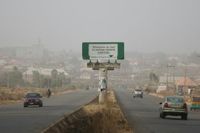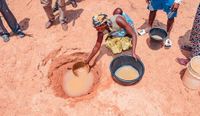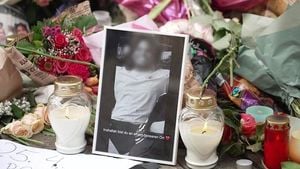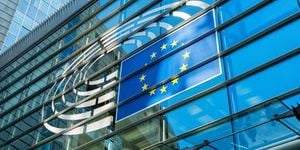In a tragic escalation of violence, more than 60 Christians were killed in Plateau State, Nigeria, during brutal assaults by Muslim Fulani militants on April 2 and 3, 2025. The attacks targeted seven Christian-majority villages in Bokkos County, leading to widespread devastation, including the looting of food and belongings, the torching of 383 homes, and the displacement of over 1,000 residents. Governor Caleb Mutfwang has condemned these coordinated assaults as genocide, stating, "I would say it unapologetically, what happened in the last two weeks in Bokkos is genocide." He emphasized the unprovoked nature of the attacks, urging that no evidence suggests a political motivation behind them.
The recent violence is part of an ongoing pattern of brutality in Nigeria's Middle Belt region, where Fulani militias have waged a campaign combining religious extremism and land-driven conflict. As access to fertile grazing land becomes increasingly strained, these militants have targeted Christian communities more frequently. Mutfwang noted that these attacks often align with the farming calendar, erupting at the beginning of the planting season and just before harvest time, effectively stifling local agriculture. "[I]t suggests to us that this is a well-coordinated plan to keep the people in those areas in perpetual poverty," he said.
This latest wave of violence adds to a grim statistic: over 5,000 Christians were killed in Nigeria in 2024 alone, according to Open Doors' 2025 World Watch List. Nigeria has consistently been ranked as the world’s deadliest place for Christians. The president of International Christian Concern (ICC), Jeff King, condemned the recent attacks, asserting, "The slaughter of over 60 Christians in Plateau State is yet another scene in the long-running play called ‘Nigeria’s genocide against its Christian population.’" He criticized both the Nigerian government and the international community for their inaction, stating, "The Fulani militias have operated with impunity for almost 20 years… The Nigerian government has never acted in a meaningful way to catch the perpetrators of these attacks or bring them to justice."
King has called on the U.S. to designate Nigeria as a Country of Particular Concern (CPC), citing the government's failure to confront ongoing religious persecution. He stressed that the global community must hold the Nigerian government accountable to stop what he termed a "stealth jihad and slow-motion genocide." Catholic leaders have also raised alarms about the situation. Bishop Ignatius Kaigama of Abuja warned that persecution of Christians in Nigeria is "more intense than ever," while Genocide Watch has labeled the country a "killing field of defenseless Christians."
The recent attacks have not occurred in isolation. In the past two weeks alone, more than 100 people have been killed across multiple rural villages in Plateau State. Reports indicate that 52 people were killed in two separate districts, with one raid occurring just 25 kilometers (15 miles) from the state capital, Jos. Such deadly incidents are not new; nearly 200 people were killed in Christmas 2023 raids on predominantly Christian towns, and a sectarian riot in Jos in September 2001 resulted in nearly 1,000 deaths.
The motives behind the recent surge in violence remain unclear, prompting President Bola Tinubu to order an investigation. Governor Mutfwang has characterized the resurgence as "premeditated, coordinated, and driven by a clear and sinister agenda," specifically pointing to Muslim Fulani groups as the perpetrators. Analysts note that local quarrels can often spiral into deadly outbreaks of violence, exacerbated by political tensions, land disputes, and illegal mining activities. Unfortunately, the perpetrators of these attacks are rarely brought to justice.
Climate change has also played a role in intensifying tensions in the region. As populations grow and farmers seek more land for crops, grazing routes become increasingly strained due to droughts. Olumide Idowu of the International Climate Change Development Initiative noted, "Climate change is intensifying tension between farmers and cattle herders because that area in the country, the Middle Belt, is where we have much of the cattle herders -- due to the increasing scarcity of water and arable land."
The historical context of violence in Plateau State is crucial to understanding the current situation. With a population of just under five million people, about two percent of Nigeria's total population of 230 million, the state has been a flashpoint for intercommunal violence for decades. Charles Asiegbu, a policy analyst, remarked, "It's as though people still hold grudges. Both Muslims, both Christians, have not forgiven themselves, have not moved on" since previous deadly clashes. Killings have persisted since 1994 and have intensified since Nigeria returned to civilian rule in 1999.
Despite ongoing peacebuilding and reconciliation efforts over the years, the situation remains dire. The federal government has deployed a military-led security taskforce, known as Operation Safe Haven, in Plateau State for the past 23 years, yet these measures appear ineffective in curbing the violence. Asiegbu stated, "It's a broader security or insecurity problem we are facing as a nation." While President Tinubu has recently declared a state of emergency in a southern oil-producing state, he has not taken similar action in Plateau, leading to criticism that he has prioritized political capital in areas where violence is less severe.
As the violence continues, many are left wondering about the government's response. President Tinubu has been criticized for being absent during this crisis, having been away in France for a working visit since April 2, 2025. Chidi Odinkalu, a professor in international human rights law, expressed frustration, saying, "Where does it happen that citizens are being killed in these numbers and the president does not show up? Nigerians are being killed and the president is missing."
As the situation unfolds, the plight of Christians in Nigeria remains a pressing concern, with calls for action from both national and international communities. The ongoing violence not only threatens lives but also the very fabric of society in Plateau State, where historical grievances and modern conflicts intertwine.





